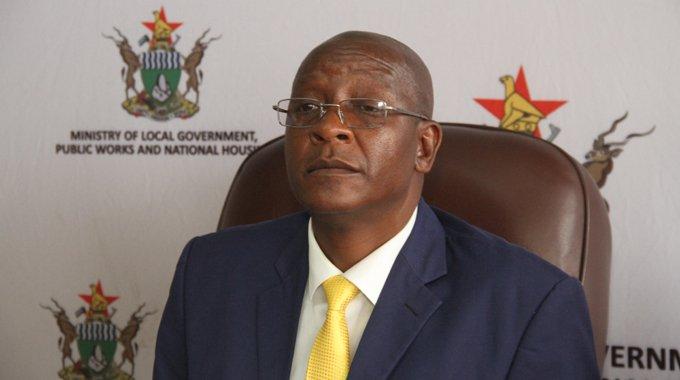News / National
'PVO Bill will clean up Zimbabwe civic space,' says Ziyambi
20 Oct 2024 at 20:03hrs |
0 Views

The Private Voluntary Organisations (PVO) Amendment Bill successfully passed through the Senate on Thursday, moving a step closer to becoming law. The bill, which has stirred controversy, was read for the third time and reported without amendments after being returned to the National Assembly for changes a fortnight ago.
This marks the second time the Senate has passed the bill, now awaiting President Emmerson Mnangagwa's signature to officially become law. In September 2023, Mnangagwa had declined to sign the PVO Amendment Bill into law, sending it back to Parliament for reconsideration. The Senate had initially passed the bill on February 1, 2023, before the President's disapproval.
Acting Senate President, Senator Eleven Kambizi of Mashonaland Central Province, hailed the bill's passage as a significant moment for the country. "It will clean up a lot of issues that were happening within our charity organisations and it is a historic day," he said after the bill passed.
Justice Minister Ziyambi Ziyambi expressed gratitude to the Senate, saying, "I want to thank the Hon. Senators for this day that the Lord has made, whereupon our Parliament has passed the Private Voluntary Organisations Amendment Bill [H.B. 2A, 2024]."
Before the vote, Ziyambi had stressed the importance of the bill in improving the administration, accountability, and transparency of charitable organisations in Zimbabwe. He explained that the term "Private Voluntary Organisation" (PVO) under Zimbabwean law refers to charities that use public funds or foreign donations, and that these organisations must register under the PVO Act, which the bill seeks to amend.
Ziyambi highlighted concerns that some charities were operating in a partisan manner, directing funds to favoured political parties or candidates, which the government deemed harmful. "Partisan assistance using foreign money or money collected from the public under the guise of charity must never be allowed to influence the outcome of national or local elections," Ziyambi said, referencing similar restrictions on charities in countries like the United States.
The Justice Minister also pointed out that some organisations had bypassed the current PVO Act by forming "trusts" through the Registrar of Deeds, Companies, and Intellectual Property, an issue the bill aims to address.
Despite the government's defense of the bill, it has faced resistance from various civil society organisations (CSOs) and international bodies. Critics argue that the bill could stifle civil society operations under the guise of combating money laundering and terrorism financing. Amnesty International and other groups raised concerns about the bill's lack of adherence to international standards, such as those set by the Financial Action Task Force (FATF), particularly regarding the need for proportionate and risk-based approaches in regulating the non-profit sector.
As the PVO Bill now heads to President Mnangagwa's desk for final approval, its passage continues to generate debate on the balance between regulating charity organisations and protecting civil liberties.
This marks the second time the Senate has passed the bill, now awaiting President Emmerson Mnangagwa's signature to officially become law. In September 2023, Mnangagwa had declined to sign the PVO Amendment Bill into law, sending it back to Parliament for reconsideration. The Senate had initially passed the bill on February 1, 2023, before the President's disapproval.
Acting Senate President, Senator Eleven Kambizi of Mashonaland Central Province, hailed the bill's passage as a significant moment for the country. "It will clean up a lot of issues that were happening within our charity organisations and it is a historic day," he said after the bill passed.
Justice Minister Ziyambi Ziyambi expressed gratitude to the Senate, saying, "I want to thank the Hon. Senators for this day that the Lord has made, whereupon our Parliament has passed the Private Voluntary Organisations Amendment Bill [H.B. 2A, 2024]."
Before the vote, Ziyambi had stressed the importance of the bill in improving the administration, accountability, and transparency of charitable organisations in Zimbabwe. He explained that the term "Private Voluntary Organisation" (PVO) under Zimbabwean law refers to charities that use public funds or foreign donations, and that these organisations must register under the PVO Act, which the bill seeks to amend.
Ziyambi highlighted concerns that some charities were operating in a partisan manner, directing funds to favoured political parties or candidates, which the government deemed harmful. "Partisan assistance using foreign money or money collected from the public under the guise of charity must never be allowed to influence the outcome of national or local elections," Ziyambi said, referencing similar restrictions on charities in countries like the United States.
The Justice Minister also pointed out that some organisations had bypassed the current PVO Act by forming "trusts" through the Registrar of Deeds, Companies, and Intellectual Property, an issue the bill aims to address.
Despite the government's defense of the bill, it has faced resistance from various civil society organisations (CSOs) and international bodies. Critics argue that the bill could stifle civil society operations under the guise of combating money laundering and terrorism financing. Amnesty International and other groups raised concerns about the bill's lack of adherence to international standards, such as those set by the Financial Action Task Force (FATF), particularly regarding the need for proportionate and risk-based approaches in regulating the non-profit sector.
As the PVO Bill now heads to President Mnangagwa's desk for final approval, its passage continues to generate debate on the balance between regulating charity organisations and protecting civil liberties.
Source - cite
Join the discussion
Loading comments…
































